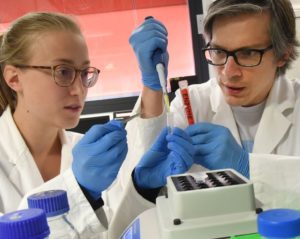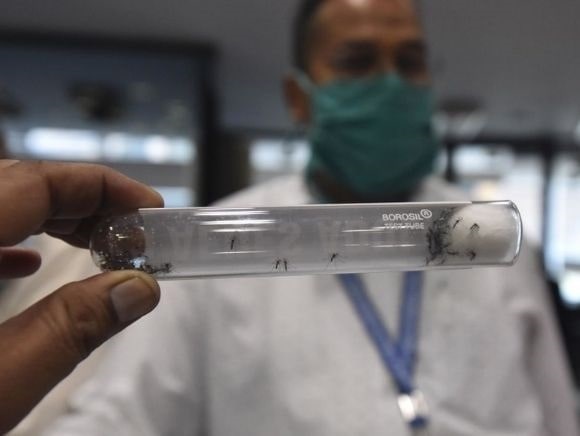Nearly half of the world’s population inhabits an area at risk for malaria – but scientists hope to change that. Through the engineering of gene drives, malaria-transmitting mosquitoes could be irradiated completely. That might sound like a great idea, but scientists and ethicists have concerns. Genetic modifications for human benefit have always been controversial, but “outfighting nature,” as one anti-genetic modification organization director says, is risky because “once the genie is out of the bottle, you cannot put it back in.”
Genetically Modified Drives
[substack align=”right”]Genetic modification (GM) technology has developed over the last two decades. The standard transformation introduces a new, lab-altered gene into an organism such as an animal or fruit. However, plans for malaria-carrying mosquitoes go a step further. Scientists will present a gene drive (GV), a lab-created gene that can replicate itself automatically. The GV will then target, remove, and replace a particular natural gene in the embryos resulting from modified and natural bugs mating. It does this by identifying and removing the natural gene from the chromosome contributed by the natural mosquito. To recover, the chromosome from the unmodified insect will repair itself by copying the gene drive from the modified chromosome. The resulting hatch of mosquitoes then all have the gene drive from the modified parent.
Compared to the standard GM, which would only carry a 50% chance of the modified gene’s offspring, the gene drive comes with a guarantee. CRISPR, Clustered Regulatory Interlaced Short Palindromic Repeats, is the secret weapon that can destroy the natural gene from the other parent. As NASA scientist turned biohacker Josiah Zayner put it, “CRISPR is this amazing technology because CRISPR allows you to directly target any sequence in somebody’s genome, in their genes, that you want and make whatever change you want.”
In mosquitoes, only the female bites and can transmit the malaria disease. By sterilizing the female mosquitoes, the number of people infected – and therefore, who die – will plummet. In 2020, 627,000 people died from malaria, and the 241 million cases caused a whopping $12 billion in health care costs. The CDC estimates however, the loss in economic growth to be even more significant. Cutting the cases even in half in hot spots would save the world economy billions of dollars.
Ethical Concerns

(Photo by Waltraud Grubitzsch/picture alliance via Getty Images)
The implementation of CRISPR and gene editing has been controversial. Undoubtedly, technology has saved human lives – but have we entered the realm of abusing the power these advancements grant us? Kevin Esvelt, a Harvard biologist, is the originator of the CRISPR-based gene drive concept, yet he’s not an adamant fan of its implementation. His concern is that it holds the power to alter an entire species, permanently. He sees a dark, scary side of scientists and their desire to go rogue, abusing the tech with ill-intentions. His discovery and first successful gene drive in 2015, he says, pushed him to be an advocate for ethics and safety. While his science could rebirth extinct animals, it could also wipe out a species and disrupt precious ecosystems.
Not all scientists are apprehensive, however. Dr. Lai Liangxue is one of China’s leading CRISPR researchers. “So far I’ve used CRISPR on dogs, pigs, rabbit, and mice,” Dr. Lai explained to Adam Yamaguchi in a 2017 CBS special report on the topic. When asked about now nervous folks get about playing God with this kind of power, he laughed and explained that the Chinese don’t have that concern. While US regulations hold back this progress, the Chinese government hasn’t hesitated to fund CRISPR research, and it was in China that the first human embryo was successfully CRISPR edited.
CRISPR has the potential to eradicate certain diseases – or to allow parents to ensure their children have whatever traits they most desire, a sort of designer humanity. But even if we can do these things, there still remains the other question: “Should we?” Should people have the option to design their children to specifications that please the parents? And the ethical concerns don’t stop at human genetic manipulation. What might be the consequences if we start removing inconvenient populations in the animal kingdom? There are people who spend their entire lives sleeping in nets only to still die after a mosquito bite, but is it our place to eradicate entire species for our benefit – to wipe out even that one disease-carrying insect – even if it affects no other population at all? The answer is no for many – but for many others, it’s a resounding yes.




